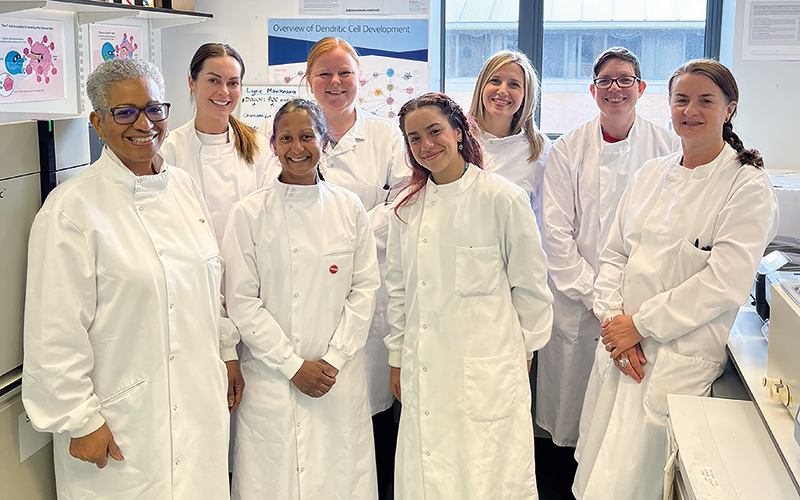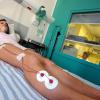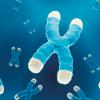Advanced Specialist Biomedical Scientist Mel Green gives a guided tour of the stem cell transplant lab at Nottingham University Hospitals.

At a glance
- Over 3000 stem cell transplants have been carried out at the trust since the first transplant was performed in 1986.
- Tissue culture work is set up on all cell collections to show potential proliferation ability and differential capability of the stem cells by forming colonies of cells, known as colony forming units-granulocyte macrophage.
- Nottingham University Hospitals is part of the second wave of hospitals providing CAR-T therapy for patients.
The bone marrow transplant programme was established at Nottingham University Hospitals (NUH) NHS Trust in 1985, with the first haematopoietic stem cell transplant performed in 1986.
Over 3000 transplants have been carried out since for patients, not only from Nottingham but also the nearby areas of Derby, Burton, Lincoln, Boston and Mansfield, with 156 transplants performed in 2023.
The dedicated Stem Cell Transplant and Cellular Therapy Laboratory, as we are now known after the on-boarding of CAR-T therapy in December 2023, was formed in 1993 at the City Campus. The team is now a combination of biomedical scientist staff along with medical laboratory assistants and admin support.
Processing of stem cells by biomedical scientists occurs in Grade A microbiological safety cabinets within a Grade C laboratory and CD34 analysis is performed in-house using a BD Lyric flow cytometer. This employs two-colour immunofluorescence along with 7-AAD for viability assessment and uses a single platform method coupled with ISHAGE gating strategy. CD3 analysis is also performed on the Lyric to allow the removal of a small portion of cells from allogeneic collections for future use as donor lymphocyte infusions.
Tissue culture work is set up on all cell collections to show potential proliferation ability and differential capability of the stem cells by forming colonies of cells, known as colony forming units-granulocyte macrophage (CFU-GM).
The laboratory handles autologous and related (sibling and haploidentical) allogeneic cells, which are collected in the onsite apheresis unit. This is alongside allogeneic collections from matched unrelated donors (MUDs), mainly coming from the UK and Germany.
Autologous (and some allogeneic) cells are cryopreserved in the laboratory using concurrently collected plasma or fresh frozen plasma for dilution if required, along with the addition of dimethyl sulfoxide (DMSO) as a cryoprotectant. Cells are frozen in rate-controlled freezers down to −80°C and then moved into main storage tanks in liquid nitrogen vapour at around −180°C until required. Allogeneic cells are generally transplanted fresh within 72 hours of collection.
Biomedical scientists transport all cells to the transplant ward for infusion by nursing staff, with frozen cells thawed individually in a water bath on the ward before handing over after appropriate checks.
With the exciting advent of CAR-T therapy, NUH is part of the second wave of hospitals providing this treatment for patients. The laboratory receives the genetically modified T-cells for storage in liquid nitrogen vapour ready for thawing and infusion on the transplant ward, which has exhibited good outcomes for the patients in the time it has been up and running.
All aspects of our work are regulated by the Joint Accreditation Committee ISCT-Europe and EBMT (JACIE) – Europe’s only haematopoietic stem cell transplantation and cellular therapy-specific accreditation body, along with the Human Tissue Authority, with regular inspections taking place.
Biomedical scientists working in the field of stem cell transplantation have varied roles and, along with close liaison with consultants, nursing and support staff as well as patient contact, ensure an engaged and committed team here in Nottingham.



